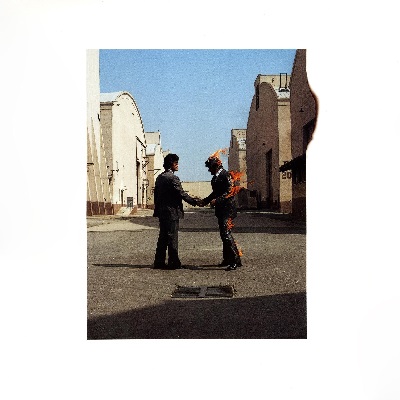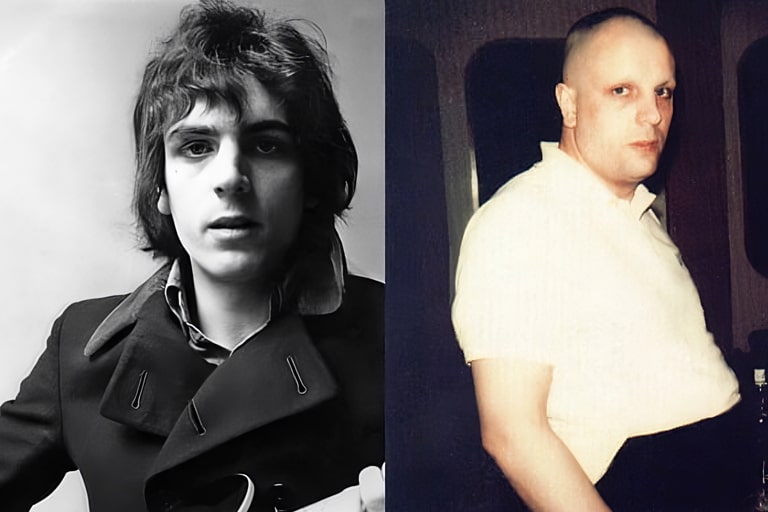News
What is “Wish You Were Here” by Pink Floyd about?

When Pink Floyd’s ninth studio album “Wish You Were Here” emerged in September 1975, it faced towering expectations. Coming on the heels of 1973’s epochal “The Dark Side of the Moon” – a crossover blockbuster that broke records and expanded musical horizons – their new effort would be measured against both commercial and creative benchmarks. Yet rather than replicate their past formula for success, “Wish You Were Here” saw Pink Floyd plunging deeper into unrestrained artistry and cryptic emotion.
Centered around the epic 5-part title track, the album balances lush orchestration and ambient textures with some of Gilmour and Waters’ most penetrating lyrics examining alienation and absence. It also stands as a heartfelt tribute to lost founding member Syd Barrett, adding personal poignancy. In this blog post we’ll explore the tangled interpersonal dynamics, lofty creative goals and pressure of legacy shadowing this masterful song cycle – unpacking the bitterness and brilliance that bred an enduring prog-rock touchstone.
Table of Contents
The Origin of “Wish You Were Here”
While Pink Floyd’s haunting 1977 track “Wish You Were Here” undeniably pays direct homage to founding member Syd Barrett, its genesis and emotional intricacy stem from multiple sources of inspiration.
The song undoubtedly echoes Barrett’s spectral absence after his 1968 departure spurred by mental health struggles. Lyrics like “We’re just two lost souls swimming in a fish bowl/Year after year” reference his unstable condition with empathy. Barrett’s creative spirit loomed over the band, and Roger Waters’ melancholy metaphors give voice to that lingering loss.
However, in interviews Waters and guitarist David Gilmour also shed light on more diffuse influences fueling the song’s wistful soundscapes. Feelings of alienation and frustration with the commercialization of art within the band blended with lingering pain over Barrett’s fate. The track gave sonic shape to that increasingly impersonal disconnect.
So while honoring their former bandmate consumes much of the song’s psychic real estate, a wider spectrum of longing colors its harmonic contours as well. “Wish You Were Here” harbored multiple dimensions of absence – the farther Pink Floyd drifted from their 1960s creative community and intimacy, the more they pined for that innocent past.

Meaning of the Lyrics
When you listen close to this song, the emotion in the lyrics just pours right through. It opens hesitant yet piercing – “So, so you think you can tell Heaven from Hell?” There’s a vulnerability there, questioning the ability to even perceive the world clearly.
As it goes on, you pick up on this vibe of getting caught up in illusions. The line “Did they get you to trade your heroes for ghosts?” just shakes you. It prods whether success came at the cost of losing meaning.
And when Gilmour swoops into those aching high notes in the chorus singing “How I wish, how I wish you were here,” the longing hits your bones. A real sense of absence spills through, of needing someone – whether it’s a person or a past part of oneself.
When Waters sings about “two lost souls swimming in a fish bowl, year after year,” you visualize former partners stuck on hamster wheels, isolated from each other. The lyrics reveal how lacking connection bleeds stagnation over time.
Yet as Waters shares, when he sings “You” – he’s also nudging himself. Questioning if he’s going complacent, coaxing his creative spirit to keep taking risks. That deeper note makes this song feel universal. We all wrestle with evolving versus staying safe.
“Wish You Were Here” transcends just honoring Barrett, tapping this well of longing and questioning complacency within us all. Moments of absence make you understand presence – that’s the vibe it gives. Powerful stuff.
The Musical Composition
Beyond lyrical poetry, the musical canvas of “Wish You Were Here” scaffolds its poignant weight through David Gilmour’s fretboard finesse and production touches telegraphing absence.
His 12-string acoustic intro simmers with spectral beauty – notes wavering as if from some distant radio signal just out of reach. Homages to Syd Barrett’s creative spirit seem to phase in and out of frequency as sound effects mimic a car stereo’s crackle and pop. The vocals enter weighed down by echo, swathed in gauzy remoteness.
When Gilmour’s lead guitar electrifies the somber balladry, his signature tone piercing yet soulful, the instrumental interplay captures melancholic revelations. Glistening pedal steel clings to each bar like an afterimage, resonant with haunting harmonics and glistening bend vibrato.
Below the surface, synth pads ebb and flow like drifting tides while Floyd’s rhythm section carves negative space for reflection. As instrumentation drops away entirely midway, we’re left alone again with the sparse begging refrain: “How I wish you were here…”
Every texture and tone crafts distance, from fuzzy broadcasts to watery piano strains, incubating an atmosphere of otherworldly longing – beckoning a missing muse. Building masterful vocals and six strings into an abstract emotional architecture, the song’s restless sense of absence sprawls around us.
Impact of the Album

Decades since its 1975 release, the poignant balladry of Pink Floyd’s “Wish You Were Here” continues finding new audiences struck by its lyrical vulnerability and sonic architecture. The album’s themes of absence, reckless fame and alienation remain universally relevant across generations.
As an artistic statement, the record’s adventurous studio production and conceptual cohesion set a benchmark for progressive works centered in raw emotion. The vulnerability Roger Waters channeled fused with David Gilmour’s enveloping guitar textures spawned a phenomenon that inspired countless musicians striving for innovation meets intimacy.
The BBC aired an entire episode of Classic Albums centered on “Wish You Were Here,” interviewing collaborators about its piercing genesis. Notably, they discuss Syd Barrett unexpectedly attending sessions while the band recorded final mixes of the song cycle directly addressing him. For several minutes gathered in Abbey Road Studios, nobody even recognized the transformed former bandleader.
That poignant moment encapsulates why “Wish You Were Here” will never lose its power – it memorializes not just the man Syd Barrett, but the creative kindred spirit that initially sparked Pink Floyd’s sonic individuality. It mourns the connections and commune-like spark that launched legends, but collapsed under fame’s weight. Decades later, the feelings still ring true for artists and listeners alike.
In summary, “Wish You Were Here” by Pink Floyd is a musical and lyrical masterpiece that transcends time and genre. Its meaningful lyrics, coupled with David Gilmour’s mesmerizing guitar work, create an emotional journey for the listener. This song is not just about the absence of Syd Barrett but also a reflection on the complexities of life, fame, and the human experience.




